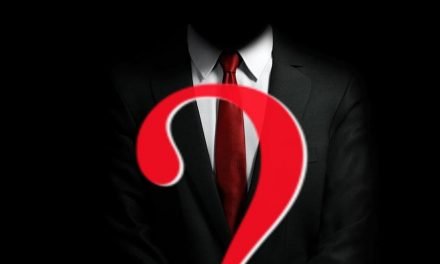Music copyright in Europe
Copyright background
A musical work which is created in a country like the UK, Canada or the US will be protected by copyright. The copyright protection will apply in all the major countries of the world under international copyright conventions. Copyright lasts for the lifetime of the author of the music plus another 70 years. During the copyright period, there are various activities which are restricted, such as making copies of the music or giving a public performance. These rights can be licensed by the owner, usually in return for a fee. The owner can split out all the different activities (such as copying and performance) and can limit the geographical scope and duration of the licence. Licences are issued to (and paid for by) a specific group or person and cannot usually be transferred to anyone else.
When a piece of music is written, the copyright will be owned by the original author(s). This may be one person, or two or more people who write the lyrics and music. Songs that are recorded and released to the public will usually end up being owned by one (or more) of a few large music publishing houses. They in turn grant licences to groups who want to buy copies of the music, perform a song in public or make a recording of it.
Because copyright is managed on a country-by-country basis, licences might be granted only in one particular country and not on a worldwide basis. This allows the publishing house to keep better control of the music – and to make more money!
Buying an existing arrangement
- Members of Sweet Adelines International who are located the UK or the Netherlands may want to buy an arrangement from a Swedish, US or Canadian arranger. You pay a fee to the arranger for the song and may think you have done everything you need to.
- However, when a US arranger (for example) obtains permission to create a new arrangement, they may only have been given permission to sell their arrangement in the US. This kind of restriction has not always been pointed out by arrangers in the past. If the arranger is only allowed to sell in the US or Canada or Sweden, then any chorus or quartet from Region 31 wanting to buy that arrangement would need to obtain an additional approval in the UK/ Netherlands and possibly pay an additional licence fee.
- If the arranger is from the UK and the chorus/quartet is from the UK, there shouldn’t be an issue provided the arranger has obtained permission to make and sell the arrangement in the UK. However, some arrangers do create arrangements without getting clearance in advance and will ask the chorus/quartet to do that, so the group will still need to get a licence from the publishing house.
How to get copyright clearance (a licence)
If an arrangement requires clearance in the UK/Netherlands, the chorus or quartet will need to contact the UK publisher/copyright holder. Sometimes it is difficult to find out who owns the copyright. If you have a copy of the music you might find details at the bottom of the first page.
If not, the next step is to ask the arranger. They may know which publishing house manages the copyright. Some of the big companies are Hal Leonard, Universal, Faber and Alfred.
If the arranger can’t help, it can be a painful and time-consuming experience to establish which company manages the copyright and then to get a response. Some publishing houses can be very slow to reply and sometimes don’t respond at all!
A company called Tresona offers to help act as a clearing house for many of these publishers, particularly in the US, but this seems to be at an inflated cost. Some arrangers have advised choruses/quartets not to use their service for this reason.
Possible solutions
PURCHASING PUBLISHED ARRANGEMENTS
Some arrangements have already been cleared for worldwide distribution. This may be because a very wide licence was obtained by the arranger, or because the song is so old that it is no longer subject to copyright restrictions. Both Sweet Adelines International (SAI) and Barbershop Harmony Society (BHS) have a list of songs which can be purchased and which do not require any additional clearances.
In addition, some barbershop arrangers are now using www.sheetmusicplus.com (SMP) to sell their arrangements. Joey Minshall and Glenda Lloyd are among the arrangers who do this. Hal Leonard (the publishing house) are also making more of their music catalogue available on the SMP website. You can buy the number of copies you need and pay directly through the site and no additional licences are needed. This seems to be a much more straightforward approach and it is likely that more arrangers and publishers will start using SMP and similar sites.
Arrangers like Deke Sharon also publish their work on the SMP website as well as on other music retail sites like Contemporary A Cappella Publishing.
SERVICE OFFERED BY BABS
Mike Lofthouse, British Association of Barbershop Singers’ (BABS) music consultant, has advised he is willing to assist members of SAI, BABS and Ladies Association of British Barbershop Singers (LABBS) in getting permissions for music that falls under Hal Leonard Europe’s (HLE) control. For all others (Faber, Alfred, etc.) he can advise on contacts and specifics for online requisitions. For any application, Mike needs to know or have the following information:
- Title of music and writer(s) and arranger(s)
- Has it been used before, e.g. is it from a source such as BHS or SAI? (see below for new arrangements)
- Copies of the music if you have them to identify other clues as to who owns the rights
- How many copies are needed and any timing issues that could be important
- Name of chorus or quartet
Once he gets this information, he will check who owns the print rights in the UK (Note that new arrangements go through a different process so are handled singly). Mike collects requests over a period of around one month to get sufficient numbers to gain volume benefits and then sends a list of all the songs to HLE. About ten days later HLE issue contracts and an invoice for all the music and Mike then sends an invoice to the chorus or quartet for their songs, with the details that need to be added to the master copy of music used to make copies for members. The price invoiced includes a £20.00 Licensing Assistance fee for each song for the work done establishing and purchasing the rights.
The whole process is handled by email and you will need to reply to whatever is the latest email, so the trail of information is kept together. Mike’s address is: musicadviceservice@singbarbershop.com
If a piece of music is owned by Faber, Alfred Publishing or Universal Music, you can either contact Mike for assistance, or contact them directly. Faber have an application form on their website. Alfred deal by email: permissions@alfreduk.com as do Universal: contact@umusic.com
Note: some songs are owned by more than one publisher and so on rare occasions you may need to get permission from more than one company.
MAKING A NEW ARRANGEMENT
Sheet Music Plus (mentioned above) also have a facility for arrangers called ArrangeMe. Songs listed there are preapproved by Hal Leonard for anyone to arrange. (The only condition is that the subsequent arrangement is sold to the public through SMP.) There are a huge number of songs on the list already and this is expected to grow. There are no clearance fees and no complicated processes for arrangers to follow. The arranger sets up an ArrangeMe account, arranges the song and within 24-48 hours the song goes live on the website and sales can begin. The songs can be sold anywhere in the world and special permission is not needed in any particular country.
You could ask your favourite arranger to arrange a song from this list and then buy it from the website. To find out which songs are on the list you need an ArrangeMe arranger’s account, or you can find the list on Glenda Lloyd’s website.
Other points
COPYRIGHT REQUIREMENTS FOR LEARNING TRACKS, CDS AND DVDS
In the UK, the Performing Rights Society (PRS) manages the collection of royalties for public performances of copyright works and also for digital recordings and videos. Choruses and quartets should pay a licence fee to produce learning track CDs, to make videos which they distribute, or to issue downloads which are made available on their websites. This is a relatively straightforward process (although it does require a fee to be paid).
COPYRIGHT REQUIREMENTS FOR PUBLIC PERFORMANCES
Royalties also have to be paid in the UK if a musical work is performed in public. This is an activity protected by copyright which requires a separate licence. If you put on a show or sing on someone else’s show, you will need to pay royalties via the PRS, as above. If your chorus is a member of Making Music (the charity), you can streamline all your PRS fees in one annual payment. If not, you will have to pay via the PRS website.
In the UK, the premises in which you are performing may have a licence to hold public performances. Many concert halls, theatres and large churches will already have a premises licence, so you may not need to pay royalties via the PRS. Often the venue will ask for a list of songs you are performing so they can make the PRS declaration. You can search for licensed premises on the PRS website.
For competitions in the UK, either the venue or the RMT provide the PRS license. Competitions in the USA use different organisations, ASCAP, BMI and SESAC, and Sweet Adelines applies for and provides the Performance License for their annual international convention.
Photo by Cassi Stewart on Unsplash












